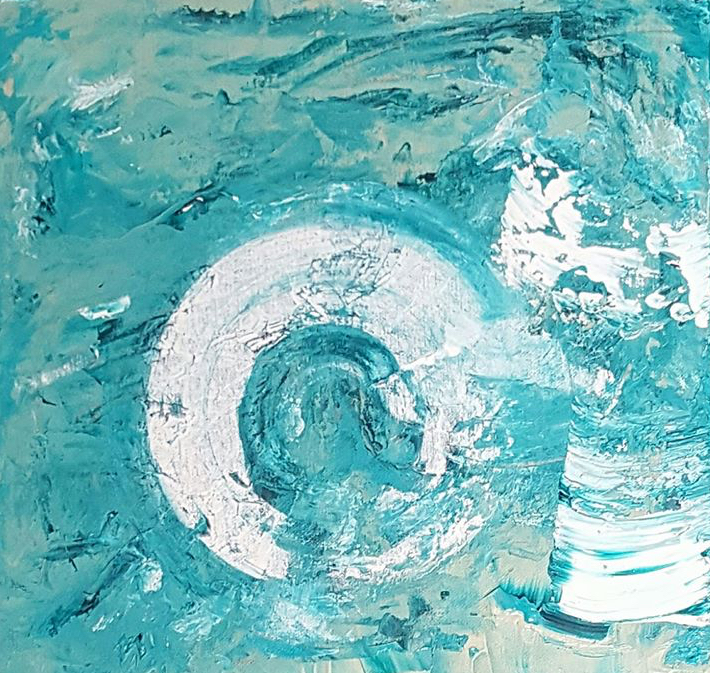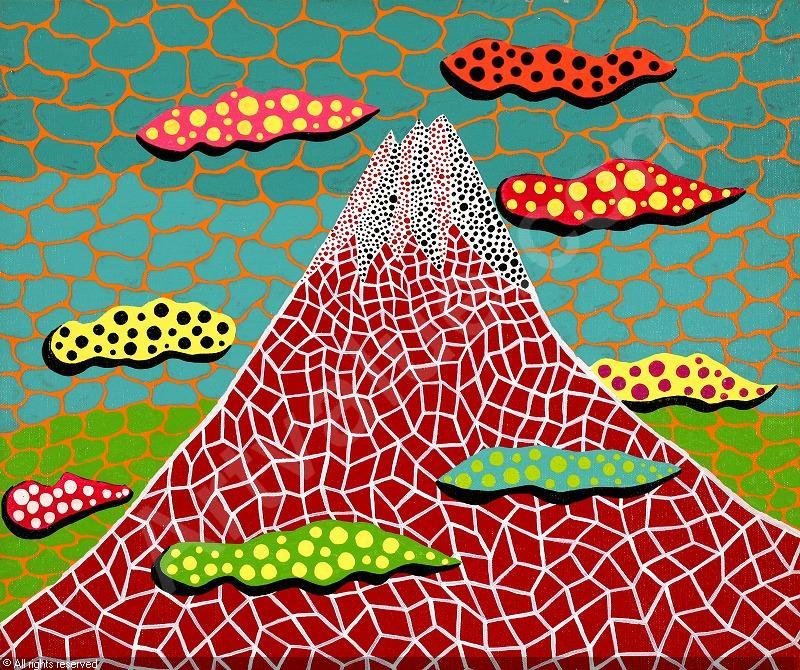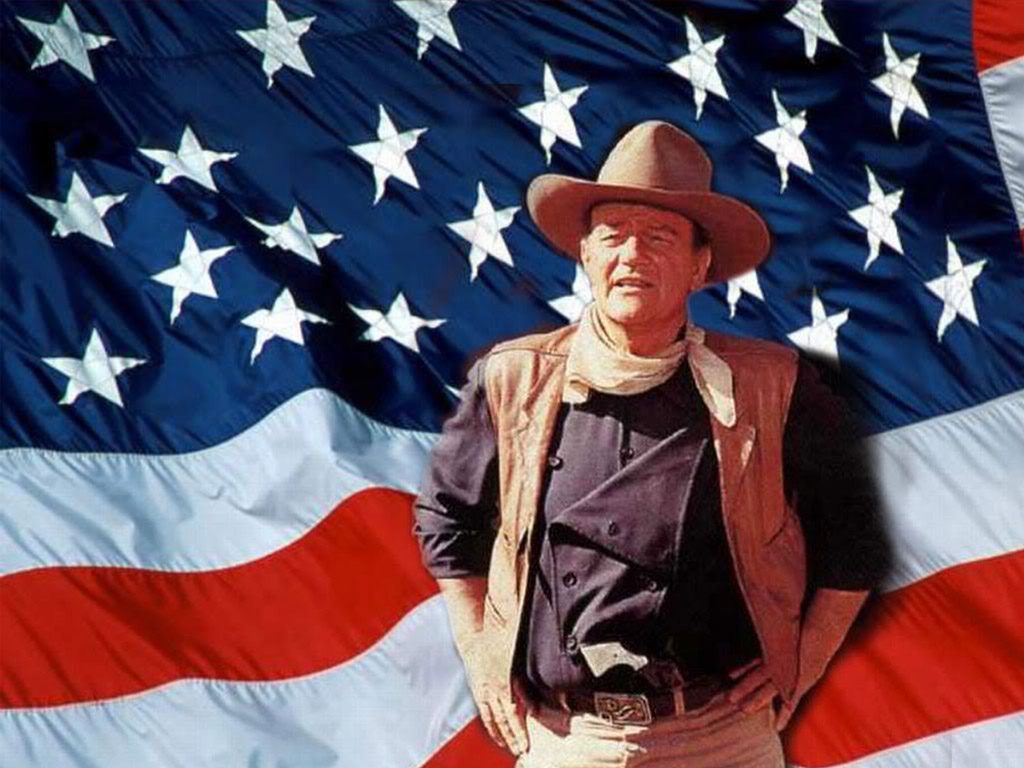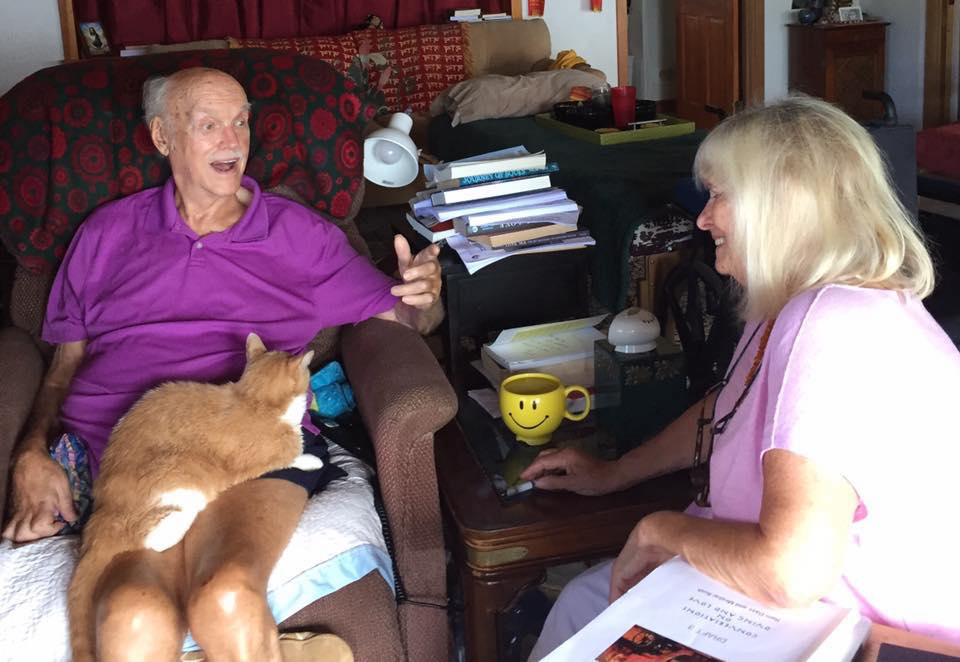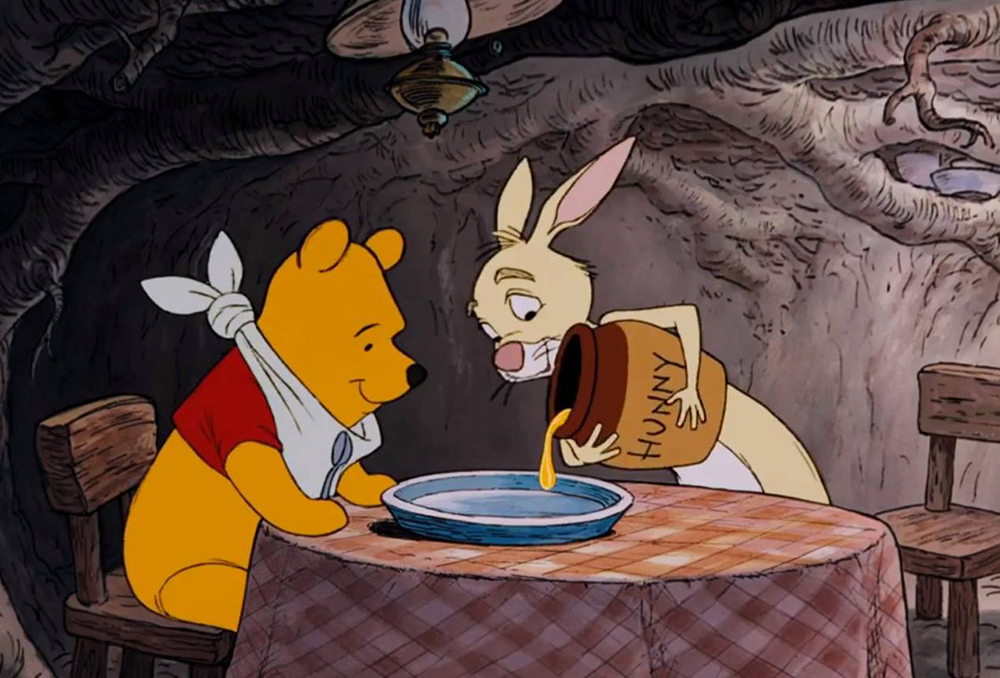Waves of Possibility
Another passage today from Phillip Moffitt’s new book, Awakening Through the Nine Bodies:
“Experiencing the Spiritual Body is like feeling the underlying power of the ocean. In some places the ocean is calm; in others it is rough. At times you can feel the effect of the wind on the ocean and the undertow of waves breaking onto the shore.
“Imagine what it would be like if you could feel all of the different qualities of the ocean at one time as un-manifest energetic waves of possibility.
“In the same way, in accessing the Spiritual Body, you can feel the ‘ocean of potential’ in the mind, which can manifest as thoughts, emotions, words, and actions. The Spiritual Body is an energetic sense of possibility that is un-manifest, yet it can be felt directly and intuited…
“Once you have experienced the Spiritual Body, you have the insight that what arises in the mind in any moment is determined either by the causes and conditions that characterize that particular moment and your mental habits or by mindful cultivation of deliberate intention.
“This is why we practice meditation — to be able to have choice about what actually arises from this vast potential.”
Thank You, Phillip
OK. I can see how it might seem a little extreme to fly all the way to California for a chance to meet with Phillip Moffitt, but:
It. Was. Worth. It.
Thank you, Phillip. That’s about all I want to say, except to post this passage from Phillip’s new book, Awakening Through the Nine Bodies: Explorations in Consciousness.
“Sometimes you may have experiences during meditation that are confusing, alarming, intoxicating, or captivating. When such experiences occur, you may become stuck or fixated on the experience as you try to understand it, or make it happen again, or make it go away, or prevent it from happening again.
“Many of these seemingly mysterious and exceptional experiences can be examined and understood utilizing the Nine Bodies map. Additionally, the perspective of the Nine Bodies creates a container for your intense meditation experiences that normalizes them and breaks your fascination or your fear of them.
“Once you have some means for normalizing an exceptional experience, you can move forward in your insight practice. Likewise, in doing jhana (concentration) practice or even concentration metta (loving-kindness) practice in the Theravada tradition, very powerful experiences can occur, which these teachings can help put in perspective.”
What Opens Before Me
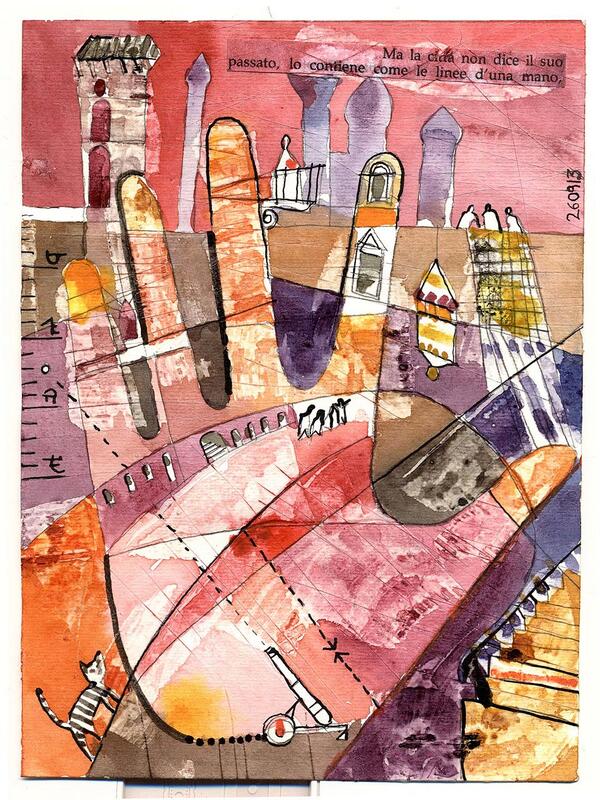 Sorry for not posting yesterday, but there was a lot going on, both internally and externally (as they say).
Sorry for not posting yesterday, but there was a lot going on, both internally and externally (as they say).
And now I won’t be posting again until Wednesday because I’m flying to San Francisco tomorrow to meet with my teacher, Phillip Moffitt, and to visit with my dear, sweet, wonderful, and so amazingly generous (!!!) dharma friends, Maggie and Tony, who are not only picking me up at the airport and hosting me at their house, but are also driving me all the way to Phillip’s office in Tiburon and back. (I love you guys!)
So now, in keeping with my pre-flight ritual of reflecting on the nature of travel as I am about to embark, I offer this selection from Invisible Cities by Italo Calvino:
Cities & Desire 1
There are two ways of describing the city of Dorothea: you can say that four aluminum towers rise from its walls flanking seven gates with spring-operated drawbridges that span the moat whose water feeds four green canals which cross the city, dividing it into nine quarters, each with three hundred houses and seven hundred chimneys.
And bearing in mind that the nubile girts of each quarter marry youths of other quarters and their parents exchange the goods that each family holds in monopoly–bergamot, sturgeon roe, astrolabes, amethysts–you can then work from these facts until you learn everything you wish about the city in the past, present, and future.
Or else you can say, like the camel driver who took me there: “I arrived here in my first youth, one morning, many people were hurrying along the streets toward the market, the women had fine teeth and looked you straight in the eye, three soldiers on a platform played the trumpet, and all around wheels turned and colored banners fluttered in the wind.
“Before then I had known only the desert and the caravan routes. In the years that followed, my eyes returned to contemplate the desert expanses and the caravan routes; but now I know this path is only one of the many that opened before me on that morning in Dorothea.”
Looking for What You Already Have
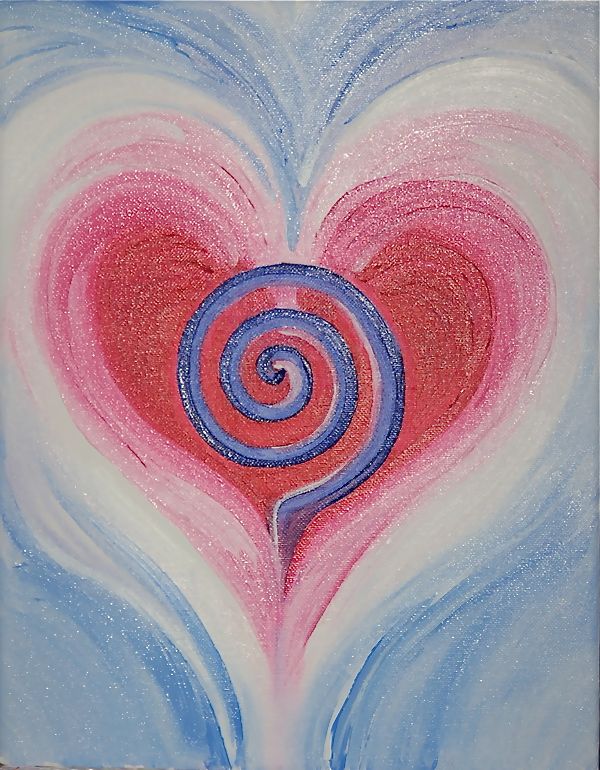 “When you seek love from another in your daily life or seek someone that will generate feelings of love within you, you are looking for what you already have.
“When you seek love from another in your daily life or seek someone that will generate feelings of love within you, you are looking for what you already have.
“All love is already within you in its giving and receiving forms as pure love without attachment or expectation, but you have to discover its presence before you can rest your mind in its presence.
“You are love, so when you feel love for another, you are experiencing this innate presence of love encountering itself through you and the other person.
“Likewise, when you have love for another, you are simply remembering what you always were and always will be, love itself.”
— from Awakening through the Nine Bodies, by Phillip Moffitt
Spirit Rock Live Webcast: Sept 17
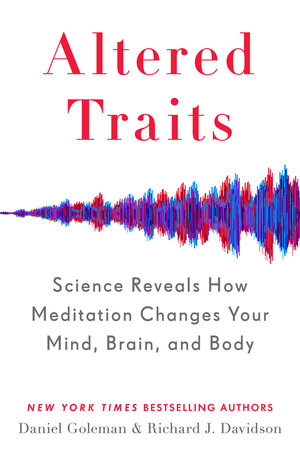 This coming Sunday, Sept 17, Spirit Rock will webcast (live) an evening with Daniel Goleman from 9:00 to 11:00 pm St. Louis time (7:00 to 9:00 pm Pacific time). Cost begins at $15. Registration is required. Click here for more information.
This coming Sunday, Sept 17, Spirit Rock will webcast (live) an evening with Daniel Goleman from 9:00 to 11:00 pm St. Louis time (7:00 to 9:00 pm Pacific time). Cost begins at $15. Registration is required. Click here for more information.
***
The claims for the benefits of vipassana and mindfulness range from scientifically sound to pure hype. At this event, Daniel Goleman answers questions about what science actually has found, what’s not known, and what’s simply not true.
His new book with neuroscientist Richard Davidson, Altered Traits: Science Reveals How Meditation Changes Your Mind, Brain, and Body sifts through the more than 6000 peer-reviewed articles on meditation to pinpoint the strongest one percent.
The news here for long-term vipassana meditators is compelling.
***
But Not All of Us
Three of my CDL buddies and I are continuing our “Waking Up to Whiteness” study group by assigning ourselves books to read (ones that we most likely would never have read in the past) and then talking about them together once a month. The book we’re reading now is Deep Denial: The Persistence of White Supremacy in United States History and Life, by David Billings.
Here’s a passage that has really stayed with me:
“The dominant culture in the US has always lifted up the nation’s ‘rugged individualism’ as key to understanding ourselves as a people.
“But not all of us have been allowed to be individuals. People of color have always been lumped together as part of a group even when the grouping made no sense (Hispanic), was ahistorical (American Indians), or culturally insulting (Asian).
“Only white people are allowed to be individuals, first and foremost.“
Both the Motivation and the Destination
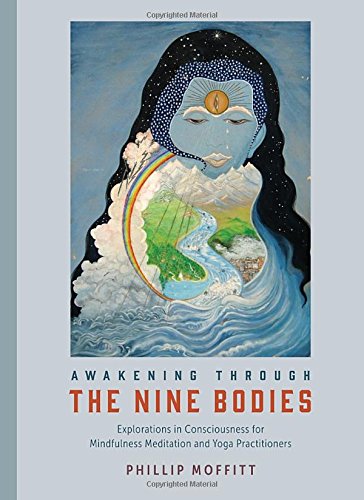 Yesterday I started reading Phillip Moffitt’s new book, Awakening through the Nine Bodies: Explorations in Consciousness for Mindfulness Meditation and Yoga Practitioners.
Yesterday I started reading Phillip Moffitt’s new book, Awakening through the Nine Bodies: Explorations in Consciousness for Mindfulness Meditation and Yoga Practitioners.
This is not a beginner’s book.
In the Introduction Phillip writes: “Inevitably, if students practice meditation with intensity, altered mind states will arise for most of them. These mind states can be extremely pleasant and involve an altered sense of perceptions, or a dazzling sense of well-being or clarity of mind that is so enticing that students obsess about wanting to have more of such an experience. It is easy for these states to distract them from the true purpose of meditation, which is to liberate the mind from greed, hatred, and delusion.”
While I am very much excited about the book’s focus on extraordinary mind states, the passage that really resonates with my deepest experience is this:
“What I have found thus far in my own journey is that love (not romantic, self-referential love, but rather the mysterious, interdependent oneness that is beyond the ego) is both the motivator for the journey and its final destination.”
I can’t wait to read more.
If I’m Going to Die…
“If I’m going to die, the best way to prepare is to quiet my mind & open my heart. If I’m going to live, the best way is to quiet my mind & open my heart.”
News from Mirabai Bush, my beloved dharma teacher, mentor, and deep dear friend:
She and Ram Dass have just finished writing their second book together, this one on love and dying, to be published by Sounds True. (Their first book was Compassion in Action: Setting Out on the Path of Service, written in 1991.) No release date announced just yet. Stay tuned!
Just About To….
“What do you like doing best in the world, Pooh?”
“‘Well,’ said Pooh, ‘what I like best –‘ and then he had to stop and think. Because although Eating Honey was a very good thing to do, there was a moment just before you began to eat it which was better than when you were, but he didn’t know what it was called.”
— from The House at Pooh Corner, by A.A. Milne
***
Ajhan Amaro says:
In the process of moving from feeling a pleasant feeling to liking it, to wanting it, to becoming completely absorbed in it, “the moment of maximum thrill is when we’re chasing after a desired object, when we know we’re going to get it, but we haven’t got it quite yet. This is what we call ‘becoming’. This is very useful to understand because, surprisingly, what we get addicted to is not getting what we want but it’s that moment when we know for sure that we are going to get it…
“We absorb into that promise, into that becoming. But as soon as we get what we want, we’re already disappointed. The thrill is in that promise…
“It’s important to use our meditation to explore and understand this process; we need to see into its mechanisms, its workings and then through that seeing, to help set the heart free from it.”
What Do We Value?
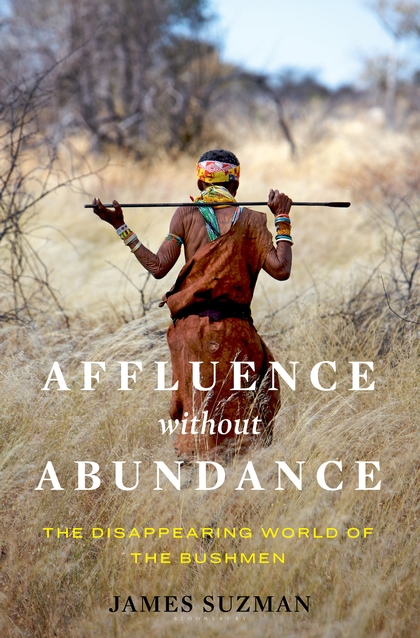 Sorry for not posting yesterday. I had a doctor’s appointment, then a friend stopped by and we got to talking, and then, after being inspired by an article in the New York Times, I started reading: Affluence Without Abundance: The Disappearing World of the Bushmen, by James Suzman. And then I couldn’t stop.
Sorry for not posting yesterday. I had a doctor’s appointment, then a friend stopped by and we got to talking, and then, after being inspired by an article in the New York Times, I started reading: Affluence Without Abundance: The Disappearing World of the Bushmen, by James Suzman. And then I couldn’t stop.
Here are some of the passages that grabbed my attention:
“Ju/’hoansi [bushmen] spend only 15 hours a week securing their nutritional requirements and only a further 15 to 20 hours per week on domestic activities that could be loosely described as ‘work.'”
“A good case can be made that hunters and gatherers work less than we do and that, rather than a continuous travail, the food quest is intermittent, leisure abundant, and there is a greater amount of sleep in the daytime per capita per year than in other conditions of society.”
“What was special about the Bushman data was that it showed that they coped easily with relative scarcity and that they had mastered the art of not obsessing about whether the grass was greener on the other side, which–given that they lived in one of the world’s oldest deserts–almost certainly was the case.”
“[The perspective of the Ju/’hoansi as a result of their introduction to modern society] brings the difference between foraging and production cultures–like our own–into vivid if sometimes uncomfortable relief. It reveals how our sense of time shapes and is shaped by our economic thinking; why, despite our obsession with celebrity and leadership, we take such pleasure in seeing the successful stumble and why we object so viscerally to inequality when we feel ourselves to be the victims of it.
“It also invites us to query how, why, and to what we ascribe value; how we understand affluence, satisfaction, and success; and how we define development, growth and progress. Perhaps most importantly it reveals how much of our contemporary economic and culture behavior–including the conviction that work gives structure and meaning to our lives, defines who we are, and ultimately empowers us to master our own destinies–is a legacy from our transformation from hunting and gathering to farming.”

